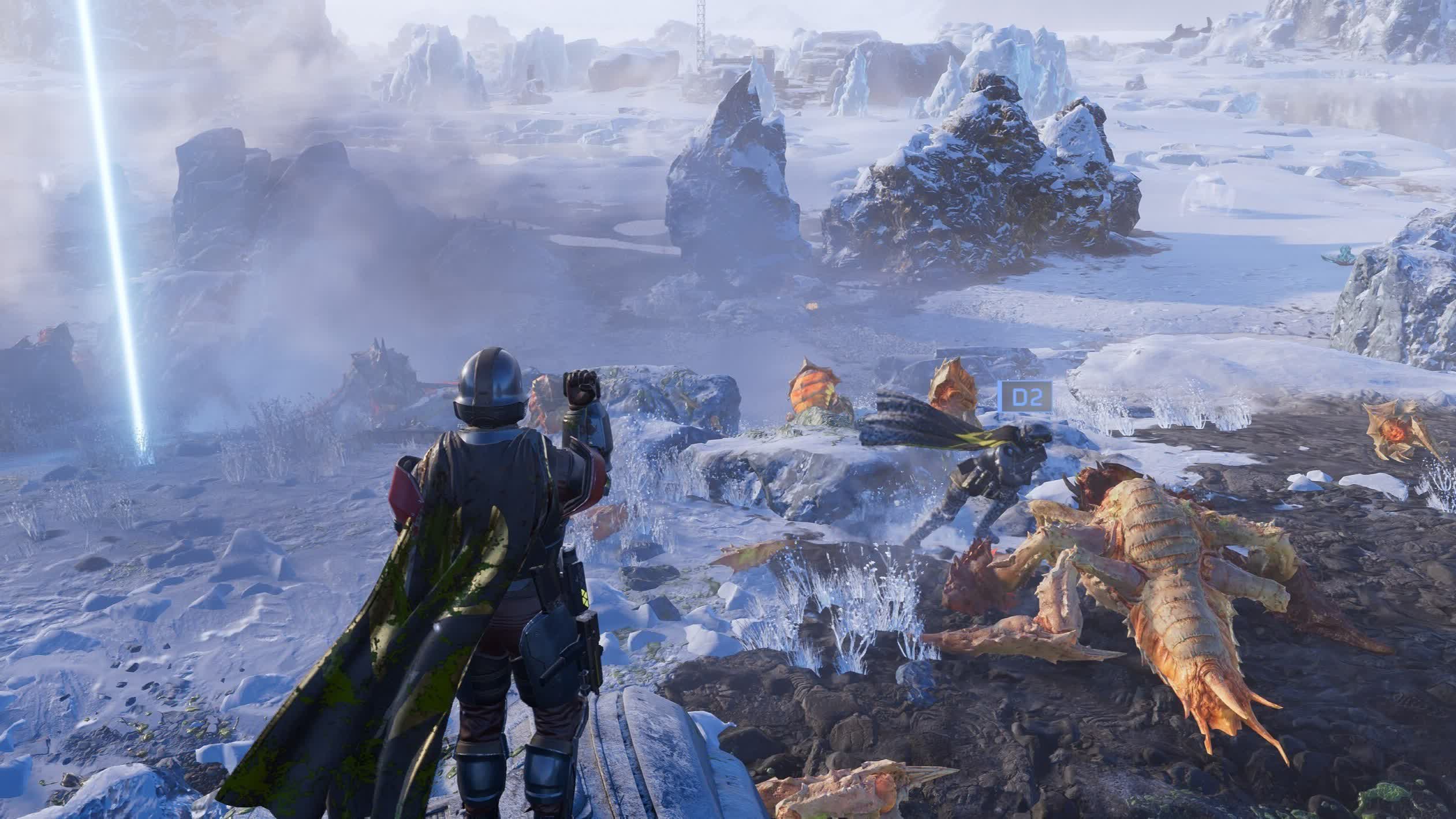The big picture: This year is looking pretty bleak for the video games industry. It started with two sleeper hits, Helldivers 2 and Palworld, unexpectedly gaining massive followings with gamers voraciously craving something new. However, there's not much on the horizon expected to push 2024 past 2023's consumer spend, which Hogwarts Legacy almost single-handedly drove.
Respected Circana (formerly NPD) analyst Mat Piscatella says spending on gaming software and hardware in 2024 will dip 2-10 percent or more compared to last year.
"Right now my most optimistic outlook is down about 2%," Piscatella said in a GamesIndustry.biz interview. "If you start looking a little bit on the more pessimistic side, you're looking at down about 10%. If things really go sideways, you're looking at a little bit more."
There is currently too much "uncertainty" in the industry to be more optimistic. The coming months are devoid of anything to get excited about, with most of the highly anticipated hardware and software slated for next year.
Great interview here with Circana's @MatPiscatella about the year ahead, why the industry needs more overachievers like Helldivers 2 and Palworld, and why GTA 6 is the most important release in games historyhttps://t.co/5Ooj7vUbLs
- James Batchelor (@James_Batchelor) March 13, 2024
"There's so much uncertainty when you look at the sales data or look to project this year," he said. "There's uncertainty around the hardware. There's uncertainty about the content. Who the hell's making the games?"
Indeed, the next forecasted mega-hit is Grand Theft Auto 6, and barring any delays, that won't arrive until 2025. Switch 2 (or whatever Nintendo calls it) will also not land until next year, at the earliest. PlayStation has no big first-party titles on deck for 2024. So there's nothing left other than mediocre games with no chance of catching up to Hogwarts Legacy, which dominated 2023 and continues to sell well in the first months of this year.
When asked if Pro versions of the PS5 and Xbox Series X would help, Piscatella said, "Don't count on it." There is a slim chance that Sony and Microsoft will launch "Pro" versions of their consoles this year, but he could not confirm that due to being "under a billion NDAs." However, he did say that nobody has told him either company plans to launch any hardware this year.
It's a moot point, anyway. Even if console revisions were to arrive by the holiday shopping season, they wouldn't have the "halo effect" the industry needs to beat the slump. Midlife upgrades only attract a small section of the market. Those buyers tend to "hand down" their older consoles to friends and family to make room for the refresh. So-called "Pro" launches have minimal effect on the overall industry. They are more to "stabilize" slowing console sales as companies work on designing next-gen hardware.
Anyways
- Mat Piscatella (@MatPiscatella) March 13, 2024
- player count and hours peaked in 2021
- black hole games dominate play
- high prices in everyday spend categories like food and rent have squeezed wallets, particularly among younger & less affluent.
But those are boring reasons for current VG market being the way it is
Other factors like inflation are also dampening gaming-related sales. Consumers have much less discretionary income, and games are low on most people's budgets.
Physical retail will take the biggest hit in 2024. Brick-and-mortar stores are already losing out to digital sales. Walk through your local Walmart's gaming section, and you'll see the paper-thin stock of new games on shelves that are one-third the size they were 10 years ago. Piscatella says that without a Switch 2, gaming stores and departments will see a significant dip in sales.
"Retail's had to get really clever, and on the physical side of the business it continues to decline," said Piscatella. "With no new Nintendo hardware this year, it's going to accelerate because Nintendo is right at the 50-50 cusp when it comes to physical/digital, but everyone else is way digital. So retail still relies on Nintendo much more than they do other platforms."
The silver lining around that dark cloud is that retailers can expect continued growth in gift card sales. Whether it's PlayStation Network or Game Pass subscriptions or just physical "cash" cards stuffed into stockings, gift cards for gaming have steadily grown.
